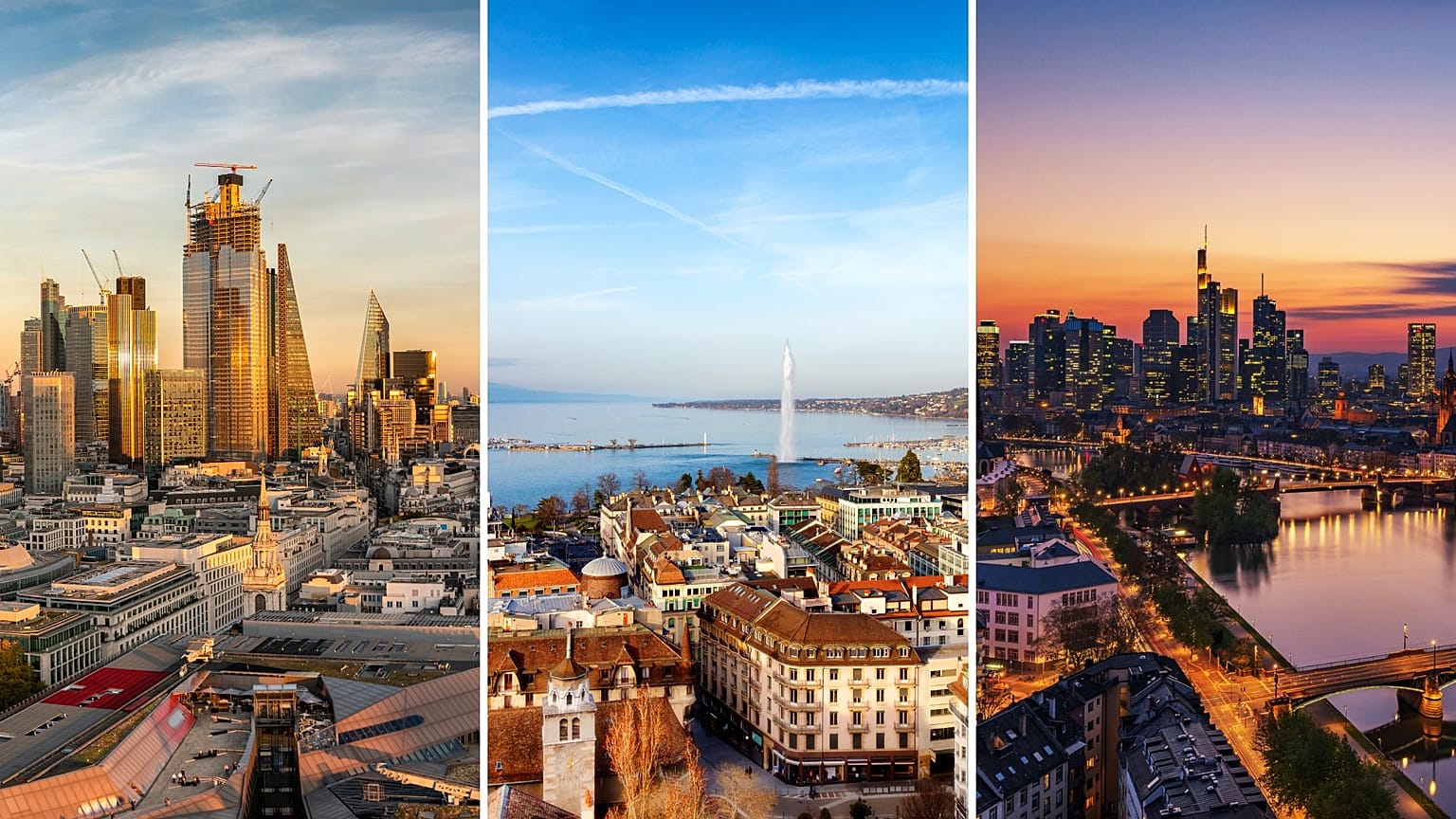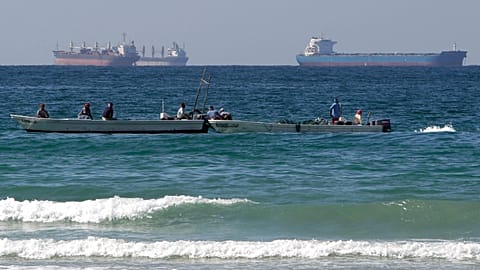The US has five financial centres in the global top 10 while Europe only pulls in two, but how do European cities rank among themselves?
In the rapidly evolving landscape of global finance, European cities are in fierce competition to establish themselves as robust financial centres - an attractive label that can bring with it crucial investment from business owners and heightened attention from policymakers.
 ADVERTISEMENT
ADVERTISEMENT
 ADVERTISEMENT
ADVERTISEMENT
In a recent ranking by the Global Financial Centres Index (GFCI), seven European cities feature in the world’s top 20 financial hubs.
While the US dominates the upper end of the list, with New York taking the number one spot, London continues to lead in Europe.
It has slightly closed in on the Big Apple compared to the previous rankings and places second globally, but is only just ahead of Singapore and Hong Kong in third and fourth place respectively.
How do other European cities fare and what are the factors that make a city a competitive financial centre?
Geneva soars
Switzerland’s Geneva is the only other European city to join the British capital in the top 10.
Increasing its rating by 29 points, Geneva has leapfrogged its financial rivals over the past year, according to the GFCI, climbing from the 23rd to 10th place.
The Swiss city is just five points behind the fifth place, occupied by San Francisco.
Analysts cite Switzerland’s regulatory environment and low levels of corruption as huge advantages for the financial strength of its cities.
The EU’s financial capital overtakes Paris
Frankfurt, home of the European Central Bank, has snagged the third top European spot from Paris in the latest report.
Known as the City of the Euro, Frankfurt is also the home of Germany’s central bank: the Bundesbank.
The German financial hub rose from the 17th to 14th place globally in the GFCI, whereas Paris slipped from the 14th to 15th. Only one rating point separates them, however.
Frankfurt is also among the 15 cities that participants in the survey expect to gain in significance.
The European cities rounding out the top 20 are Luxembourg (16th), Zurich (18th) and Amsterdam (19th).
Germany has five cities in the top 50
Germany is the strongest European nation when it comes to looking at the rankings on a country-by-country basis.
Despite none of them featuring in the top 10, Germany has five cities in the global top 50 list - the most of any European country.
In addition to Frankfurt, Berlin rose from 26th to 23rd place, while Munich dropped from 18th to 26th.
Stuttgart rose slightly from 47th to 46th place, whereas Hamburg fell from 43rd to 49th.
Switzerland is the European nation with the next most cities featured in the top 50, with Lugano ranking 47th. The UK has two with Edinburgh in 34th place.
The other European cities featuring in the top 50 are Ireland’s Dublin (25th), Sweden’s Stockholm (40th), Norway’s Oslo (42nd), Italy’s Milan (45th), Spain’s Madrid (48th) and Finland’s Helsinki (50th).
Their individual scores are grouped closely together, suggesting possible changes in the next GFCI report.
British Crown Dependencies make the cut, but there’s a noticeable east-west divide
Also worthy of note are the three British Crown Dependencies, which each hold a place in the top 60. Jersey, Guernsey and the Isle of Man are ranked 52nd, 58th and 59th, respectively. They are not part of the United Kingdom but are self-governing possessions of the British Crown.
The GFCI categorises Europe into two groups: Western Europe, and Eastern Europe and Central Asia, showing a clear divide between east and west.
Up to the 60th place in the list, all of Europe’s best financial hubs are in the Western Europe group.
Kazakhstan’s Astana is ranked 60th, holding the highest place in the Eastern Europe and Central Asia grouping. Prague is next at 79th, and then Tallinn at 87th.
Away from Europe, the US scored highly, with five financial centres in the top 10, reflecting the strength of the US economy. Leading Chinese centres also featured in the top 20.
What makes a good financial hub?
According to the GFCI 34, a city’s reputation and business environment have a significant correlation with its financial competitiveness.
The report found that the Corruption Perception Index and the Economic Freedom of the World Index demonstrate the link: A city’s rating as a financial centre rises in line with its increase in economic freedom and its decrease in corruption perception.
A city’s branding is also a significant factor influencing the competitiveness of financial centres.
Analysts say that a positive city reputation, built through factors such as safety, stability, cultural offerings, and quality of life, can attract businesses, professionals, and investors.

















